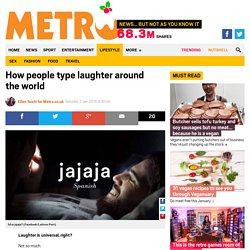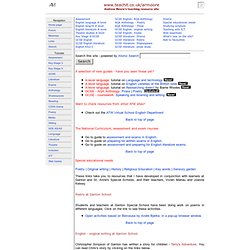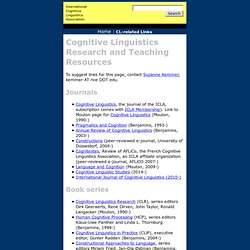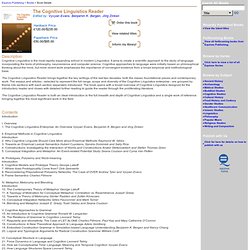

How people type laughter around the world. Laughter is universal, right?

Not so much. While humour and sharing a laugh is something that can be experienced across cultures, distance, and language, the way we express laughter around the world is actually pretty different. That’s right, not everyone has to face the ‘lol’ versus ‘hahaha’ debate (hahaha will always win, just saying). Instead, those in Spain comment jajaja on their friend’s ridiculous profile picture, while in Thailand a good joke will be rewarded with a 55555.
Here’s how people type laughter around the world, with information from Latinos Post. UK and America: Hahaha or LOL Or occasionally hehehe, or ROFL (if it’s hilarious), or the now underused LMAO. Italy: Ah ah ah ah While this reminds us of The Count from Sesame Street, Italians just think of his as the phonetic way of writing out the sound of laughter. China: 哈哈 In Mandarin, laughter is expressed with 哈哈, pronounced haha. Korea: Kkkkk And occasionally kekekeke. Nigeria: LWKMD Greece: Xaxaxa Brazil: Rsrsrsrs France: Mdr.
Wallpaper. Linguistic Variation, Language Contact and the New Comparative Bantu. Syntax. Semantics. Andrew Moore's resource site home page - default. Andrew Moore contents.htm. A selection of new guides - have you seen these yet?

A-level language: tutorial on Language and technology A-level language: tutorial on English varieties of the British Isles A-level language: tutorial on Researching dialect by Barrie Rhodes GCSE - AQA Anthology: Prose | Poetry GCSE - coursework: Speaking and listening and writing Want to check resources from other ATW sites? Check out the ATW Virtual School English Department Back to top of page The National Curriculum, assessment and exam courses Special educational needs Poetry | Original writing | History | Religious Education | Key words | Sensory garden These links take you to resources that I have developed in conjunction with learners at Ganton and St.
Poetry at Ganton School Students and teachers at Ganton Special School have been doing work on poems in different languages. Open activities based on Berceuse by André Bjerke, in a pop-up browser window. English - original writing at Ganton School History at Ganton School Learning keywords. Cognitive Linguistics Research and Teaching Resources. To suggest links for this page, contact Suzanne Kemmer, kemmer AT rice DOT edu.

Journals Book series Cognitive Linguistics Research (CLR), series editors Dirk Geeraerts, Rene Dirven, John Taylor, Ronald Langacker (Mouton, 1990-) Human Cognitive Processing (HCP), series editors Klaus-Uwe Panther and Linda L. Thornburg (Benjamins, 1998-) Cognitive Linguistics in Practice (CLiP), executive editor, Günter Radden (Benjamins, 2004-) Constructional Approaches to Language, series editors Miriam Fried, Jan-Ola Østman (Benjamins, 2004-) Language, Context, and Cognition, series editor Anita Steube (Mouton, 2004-) The Expression of Cognitive Categories (ECC), series editors Wolfgang Klein, Stephen Levinson (Mouton, 2006-) Applications of Cognitive Linguistics, series editors Gitte Kristiansen, Michel Achard, Rene Dirven, Francisco J.
Ruiz de Mendoza (Mouton, 2006-) Advances in Cognitive Linguistics, series editors Vyv Evans, Ben Bergen, and Jørg Zinken (Equinox, 2007-) Geeraerts, Dirk. 2006. Steven Pinker: What our language habits reveal. Equinox - Books - Book Details. Introduction I.

Overview1. The Cognitive Linguistics Enterprise: An Overview Vyvyan Evans, Benjamin K. Bergen and Jörg Zinken II. III. IV. V. VI. VII. Annotated Further Reading Specifications.
Phonetics & phonology. Radio 4 Word of Mouth podcasts.